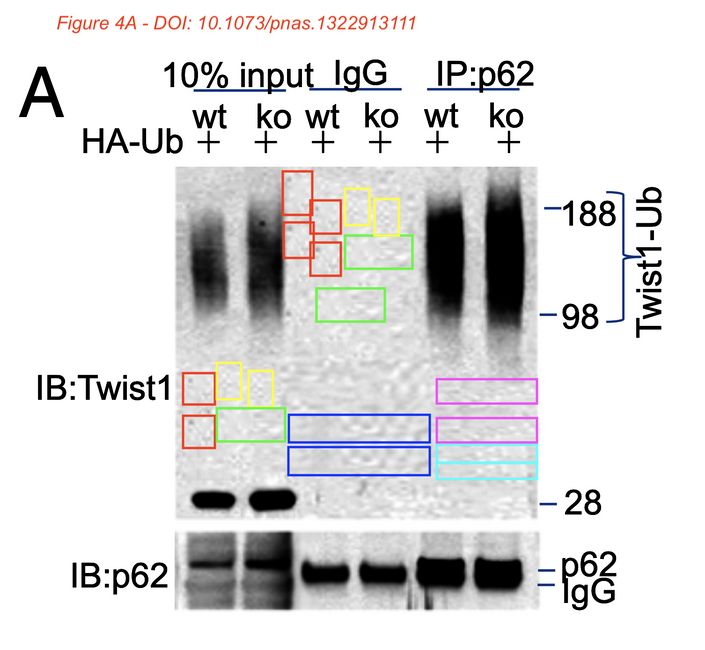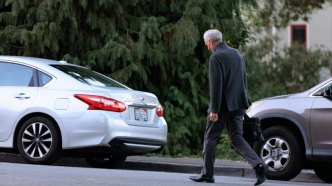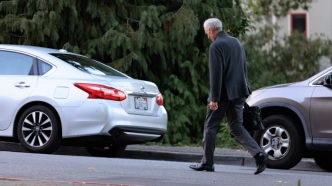

Nine years after its publication, a research paper from the University of Chicago in the United States was voluntarily withdrawn by the author due to image problems.
On August 28, the Proceedings of the National Academy of Sciences (PNAS), an international academic journal, issued a retraction statement online, saying that due to image problems such as splicing or pasting and background repetition in the paper, He Yuying, a professor of medicine at the University of Chicago, and others voluntarily retracted an article Research Papers.
He Yuying is the corresponding author of the aforementioned paper.

Academic faker and biologist Elisabeth M Bik commented that there is an image duplication problem in Figure 4A and asked, "Does the author still have the original image?"
Six months ago, in February 2023, academic anti-counterfeiting person and biologist Elisabeth M Bik (Elisabeth M Bik) commented on the review website PubPeer after the publication of the paper, regarding the duplication and splicing of the pictures in the previous paper. The question was questioned.
The aforementioned retraction statement states, "We are retracting this paper due to the following graphical issues: data stitching or pasting (Figure 3A, E-cadherin blot, lanes 2, 3, 5, and 6; SI Appendix, Figure S3D, Myc blot , lanes 1 and 2); irregular background (Fig. 3B, E-cadherin blot, lane 4)..." "To validate the original data, we repeated the experiment. Corrected results will be submitted and deposited in (preprint website) on bioRxiv..." "Although we believe that our validation data support our original conclusions with the exception of Figures 4A and B (Twist1-Ub), we retract this article due to the aforementioned issues. For the resulting We apologize for the inconvenience.”
The title of the paper involved is "Regulation of cell proliferation and migration by p62 through stabilization of Twist1" (Regulation of cell proliferation and migration by p62 through stabilization of Twist1), which was published online on June 9, 2014 .
As of now, the paper has been viewed more than 11,000 times and has been cited 170 times.
According to the paper involved, p62 is a selective autophagy substrate, which is the molecular link between autophagy and cancer. Inhibition of autophagy leads to the accumulation of p62, which promotes tumorigenesis. Here, we demonstrate that autophagy deficiency promotes cell proliferation and migration through the transcription factor Twist1. Upregulation of p62 promotes tumor cell growth and metastasis in a Twist1-dependent manner in mice. Our results identify Twist1 as a key downstream effector of p62 in regulating cell proliferation and migration and suggest that targeting p62-mediated Twist1 stabilization is a promising therapeutic strategy for the prevention and treatment of cancer.
Nine years after publication, the aforementioned paper was voluntarily withdrawn by the author due to image issues.
According to the relevant website of the University of Chicago, He Yuying is a professor of dermatology in the School of Medicine. His research interests are the molecular mechanisms of environmental ultraviolet (UV) radiation-induced skin cancer and the development of chemopreventive and therapeutic strategies. Its research addresses a fundamental question: how normal cells respond to environmental carcinogens and become cancerous. His team is particularly interested in the role of epitranscriptomics, epigenetics and autophagy in regulating genome integrity and cellular homeostasis, and studying their impact on cancer development and treatment resistance, with a focus on skin cancer , including squamous cell carcinoma and melanoma. Her current research focuses on identifying previously unrecognized novel molecular/cellular processes that determine susceptibility to skin cancer.


